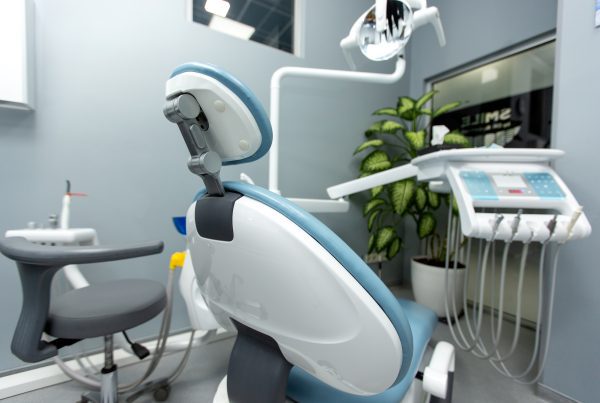Tooth Replacement Costs
Tooth replacement is a dental procedure that becomes necessary when individuals lose one or more of their natural teeth due to various reasons, such as decay, injury, or gum disease. The cost of tooth replacement can vary significantly depending on several factors, including the type of replacement option chosen, the number of teeth to be replaced, the geographic location of the dental practice, and the specific needs of the patient. Whether one opts for dental implants, bridges, dentures, or other options, understanding the factors that influence the cost of tooth replacement is essential for making informed decisions about oral health and budgeting for this important aspect of dental care. In this article, we will delve into the various factors that impact the cost of tooth replacement and explore the different options available to individuals seeking to restore their smile and maintain their oral well-being.

What are the different options for tooth replacement, and how do their costs compare?
Here are the different options for tooth replacement and a general comparison of their costs:
- Dental Bridges:
- Dental bridges are prosthetic devices used to replace one or more missing teeth.
- The cost of dental bridges can vary based on the material used (e.g., porcelain, metal, or a combination) and the complexity of the procedure.
- On average, traditional bridges may cost between $500 to $3,000 per tooth replaced, depending on various factors.
- Dental Implants:
- Dental implants are surgically inserted into the jawbone and provide a sturdy, long-term tooth replacement solution.
- Dental implants are generally more expensive than other options due to the surgical procedure involved.
- The cost of a single dental implant can range from $1,000 to $3,000, and the total cost for a full set of implants can be much higher.
- Partial Dentures:
- Partial dentures are removable appliances used to replace multiple missing teeth.
- The cost of partial dentures varies based on the materials and design, with prices typically ranging from $300 to $2,000 or more.
- Flippers:
- Flippers, also known as temporary dentures, are removable acrylic devices designed for short-term tooth replacement.
- Flippers are generally the most affordable option, with costs typically ranging from $300 to $500 per tooth.
It’s important to note that these cost ranges are approximate and can vary significantly depending on factors such as the materials used, geographic location, the expertise of the dental professional, and any additional procedures that may be required, such as bone grafts or extractions. Patients should consult with their dentist to get a personalized cost estimate for their specific tooth replacement needs. Additionally, while flippers may be more budget-friendly, they are usually intended for short-term use, and long-term solutions like dental implants or bridges may offer better stability and functionality.
What factors can influence the cost of dental implants as a tooth replacement option?
The cost of dental implants as a tooth replacement option can be influenced by several key factors. Firstly, the number of implants required plays a significant role; a single implant is less expensive than a full-mouth reconstruction. Secondly, the choice of materials, including the implant itself and the crown, can impact costs. Additionally, the need for any supplementary procedures such as bone grafts or sinus lifts to prepare the implant site can add to the overall expense. The geographic location of the dental practice also plays a role, with urban areas generally having higher costs than rural regions. Lastly, the experience and expertise of the oral surgeon or prosthodontist can affect the cost, as more skilled professionals may charge higher fees. Considering these factors, the cost of dental implants can vary widely, with the average cost per implant ranging from $1,000 to $3,000 or more, making it important for patients to discuss their specific needs and receive a tailored cost estimate from their dental provider.


Are there any insurance or dental plans that cover the cost of tooth replacement procedures?
Dental insurance and dental plans often provide some coverage for tooth replacement procedures, but the extent of coverage can vary significantly depending on the specific plan and the insurance provider. Basic dental insurance plans typically cover a portion of the costs for procedures like dental bridges, dentures, and, in some cases, partials. However, dental implants are usually considered a more complex and costly procedure, and coverage for them may be limited or excluded in many standard dental insurance plans. Some insurance plans may offer optional implant coverage at an additional cost. It’s important for individuals to carefully review their insurance policy and inquire with their insurance provider to understand the extent of coverage and any limitations or waiting periods that may apply to tooth replacement procedures. Additionally, standalone dental discount plans may offer reduced fees for these procedures, making them an option for those seeking more affordable dental care.
Are there any financing or payment options available to make tooth replacement more affordable?
Yes, there are several financing and payment options available to make tooth replacement more affordable for individuals who may not have the means to cover the entire cost upfront. Many dental practices offer in-house financing plans, which allow patients to pay for their procedures in installments over an extended period, often with low or zero interest. These plans make the cost of tooth replacement more manageable and accessible.
Another option is third-party medical financing companies, such as CareCredit or LendingClub, which specialize in providing healthcare financing, including dental procedures. Patients can apply for these programs to cover their dental expenses and then make monthly payments, spreading the cost over a set period. Some of these companies may even offer interest-free promotional periods for qualified applicants. Moreover, some dental offices also accept credit cards, which can provide a convenient way to finance the treatment cost. Patients should explore all these options, discuss payment plans with their dental provider, and choose the one that best fits their financial situation and needs to ensure they can access the tooth replacement procedure they require.


What is the cost difference between removable dentures and implant-supported dentures?
The cost difference between removable dentures and implant-supported dentures can be substantial. Removable dentures are typically more affordable than implant-supported dentures. Removable dentures are a non-surgical, traditional tooth replacement option, and their cost is primarily determined by factors such as the materials used, the complexity of the denture design, and the expertise of the dental professional. On average, the price for a set of removable dentures can range from $1,000 to $3,000 or more.
In contrast, implant-supported dentures involve a surgical procedure to anchor the denture to dental implants that are placed in the jawbone. This additional complexity and the use of dental implants generally make implant-supported dentures significantly more expensive. The cost can vary widely depending on the number of implants needed, the materials used for the denture, and the geographic location, but it’s not uncommon for implant-supported dentures to cost several times more than traditional removable dentures. On average, the total cost for implant-supported dentures can range from $5,000 to $10,000 or more. While implant-supported dentures may have a higher upfront cost, they offer several advantages, including improved stability and functionality, which can make them a worthwhile investment for many individuals seeking a long-term tooth replacement solution.




